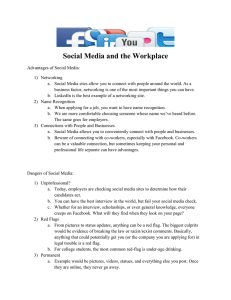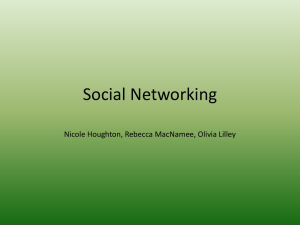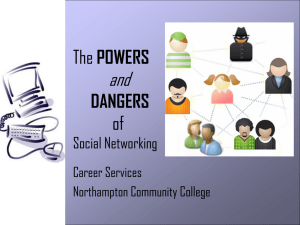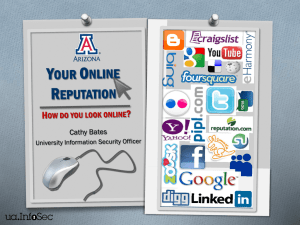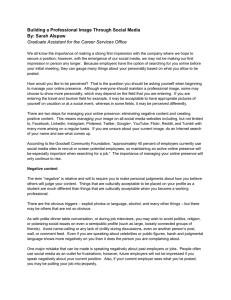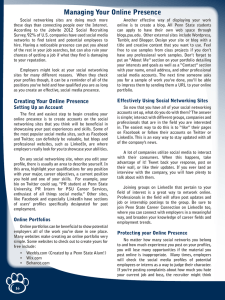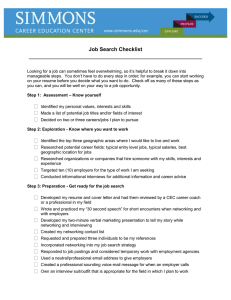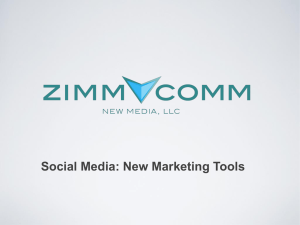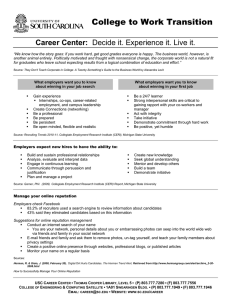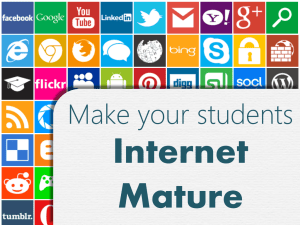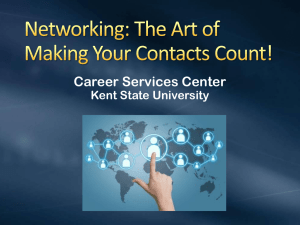building a career-ready digital network and profile
advertisement
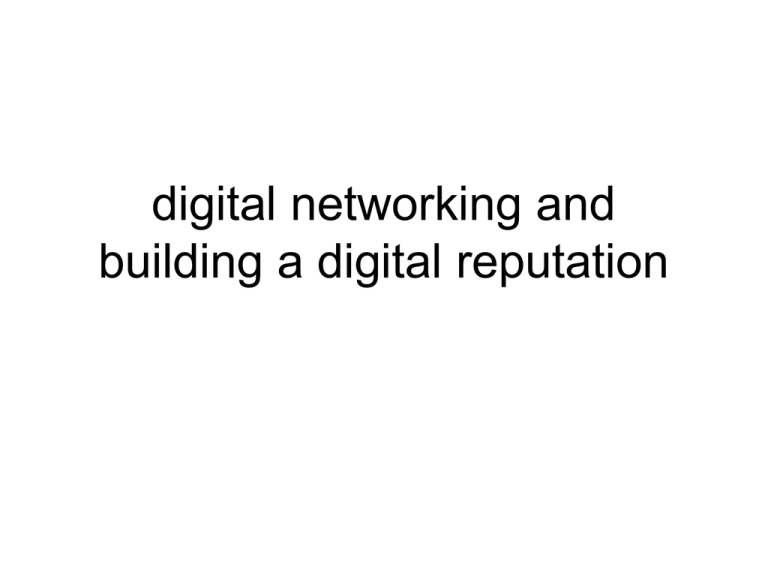
digital networking and building a digital reputation Session objectives • To audit your own digital profile • To identify features of a positive digital profile • To think about what successful online networkers do • To plan for building a career-ready digital network and profile Why digital networks? • 45% of employers (US figures) use social networks to screen applicants • Most recruiters use social media sites (Facebook, LinkedIn, twitter) to source candidates • Your digital reputation is a crucial asset in the job market • What do you look like online? Activity in pairs • For this activity you will need access to a digital device (smartphone, laptop, netbook) and an internet connection • If you are using your own device, do not log into any social networks (e.g. Facebook) Activity in pairs • Introduce yourself with your full name only • Find out more about each other using ONLY material that is publicly available online • You can guide each other to relevant sites but don’t give away information you can’t see online • Do not sign in to social networks (private material will be visible) • • • • • • Some tips Look for local news stories that may have included you – fund raising, community events etc Look for clubs/societies you are involved with Is anything you have learned or achieved at University available online? Previous employers, work placements etc may have a web page with your details on If you are a member of social networks, check out what is publicly visible Don't worry if you can't find anything, that is still useful information Reflections • Were you surprised by what you found? • How much of what is visible about you online is under your control? • What could you do to create a more positive digital identity? Social networking and your career • make yourself visible to potential employers • find out more about the sectors, companies or specialisms that interest you • connect with people who share your interests • build a lifelong network that can take you from job to job Some networks you might know... • Facebook, Google+ (for everyone) • academia.edu, researchgate (researchers, academics and PG students) • LinkedIn, xing, zerply (professionals) • Twitter (used by academics and professionals) What makes a good • Same principles as offline networking networker? apply (LINK) • Everything is more public (what goes around definitely comes around) • Connecting is easy, quality connections need work • Layer information - use links so people who want to know more can find it • LARC (Lurk while you learn, Ask questions, Repost/retweet, Collate information for others) Managing your digital reputation • Profiles • Updates • Networks • Connections • Help (yourself and others) Activity in pairs • Identify somebody who has a positive profile in your chosen field – opinion former, business leader, star researcher • What can you find out about them online? • What networks do you think they belong to? Reflections and action planning • What network do you think it is most important for you to join right now? • What three things can you do to create a positive online profile? • What three things can you do to actively build your professional network online? More information • Resources on using Linked-In effectively • Hand-out on building a digital profile
